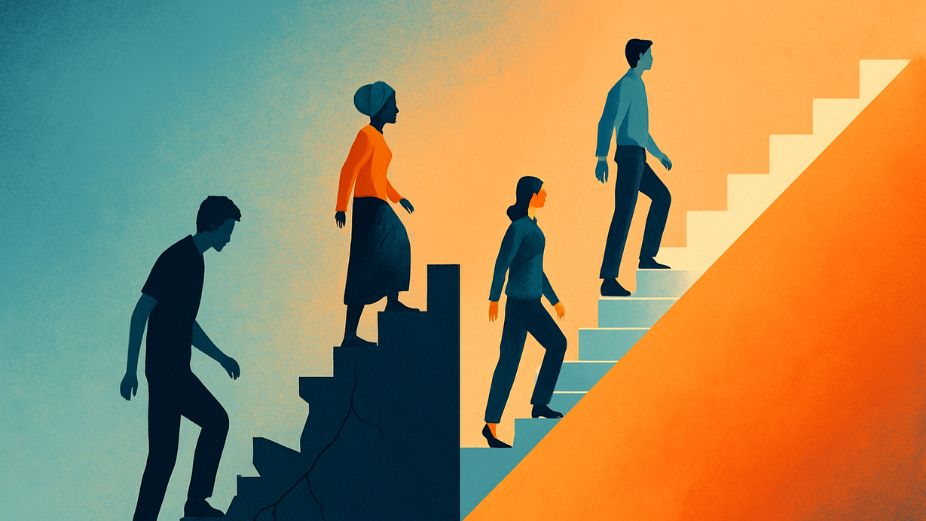
Across much of the world, diversity, equity, and inclusion (DEI) has shifted from being a progressive rallying cry to a contested ideal. In some countries, political backlash has led to DEI roles being cut, programmes quietly shelved, and the language of inclusion softened or sanitised. Once seen as essential to fairness in the workplace, DEI is now being portrayed in some circles as an obstacle to excellence, a distraction from the supposed purity of meritocracy.
In the Maldives, where the DEI debate is still nascent, this global shift may seem remote. Yet the underlying questions remain relevant. How do we design institutions that are both inclusive and effective? How do we support those historically left out without alienating others who believe in earning success through effort and ability?
Crucially, what does diversity even mean in a country with a largely shared language, religion, and ethnicity?
The answer: more than we may think.
The Unseen Layers of Exclusion
On the surface, the Maldives appears socially uniform. But beneath that are stark inequalities rooted not in race, but in gender, geography, class, and citizenship.
Maldivian women continue to face barriers to advancement. Despite strong representation in higher education, women are underrepresented in leadership roles, elected office, and decision-making spaces. Expectations around domestic responsibilities, mobility, and social conduct constrain their participation in economic life. In many workplaces, gender roles remain rigid and career progression is uneven.
Meanwhile, opportunities remain unequally distributed across the country. Those from Malé or well-connected families often benefit from better access to schools, internships, and professional networks. In contrast, individuals from outer islands, especially women, may find themselves sidelined despite having the qualifications and drive to succeed. English proficiency, urban polish, and social capital become unspoken prerequisites for entry into certain industries or senior roles.
And then there is the country’s large migrant workforce, predominantly from Bangladesh, India, Sri Lanka, and the Philippines. These individuals are foundational to the Maldivian economy, yet remain absent from public life and policymaking. Their labour is visible everywhere in construction, hospitality, and domestic work, but their voices are not. They face systemic exclusion, ranging from poor housing and wage exploitation to limited legal recourse. While they may not be included in national diversity frameworks, their treatment is inseparable from any honest conversation about inclusion and justice.
The Limits of Meritocracy
The common response to DEI scepticism is to defend meritocracy, the idea that jobs and opportunities should go to the most capable, regardless of background. This is a noble ideal, but it often rests on the flawed assumption that everyone starts from the same place.
In practice, meritocracy rewards those who have already been given advantages. In the Maldivian context, this may mean those with fluent English, exposure to international education, or family connections in influential institutions. Talent exists everywhere, but opportunity does not. And without deliberate efforts to recognise and address these gaps, the system merely reproduces inequality under the guise of fairness.
The Case for Balance
This does not mean abandoning standards. Nor does it mean handing out roles based on identity alone. What it requires is balance, a recognition that true excellence depends not just on individual skill, but on systems that allow a wider pool of people to develop, grow, and contribute.
For the Maldives, this means building pathways for women to lead, for youth from the atolls to thrive, and for workers of all backgrounds to be treated with dignity. It means mentorship, not tokenism. Structural support, not handouts. Clear, transparent hiring practices that leave less room for bias and more room for potential.
It also means acknowledging that inclusion is not a zero-sum game. Creating space for one group does not diminish another. In fact, inclusive environments are often more innovative, more resilient, and more effective in the long run.
Where DEI Should Go From Here
DEI in the Maldives should be reframed, not as an imported checklist, but as a national conversation about fairness, access, and representation. The work ahead involves listening to those left out of power and building structures that serve everyone, not just the well-positioned few.
Rather than choosing between inclusion and merit, the Maldives must recognise that one depends on the other. Excellence without equity is exclusion. And equity without rigour is unsustainable. But together, they offer a pathway to a stronger, more just society.












